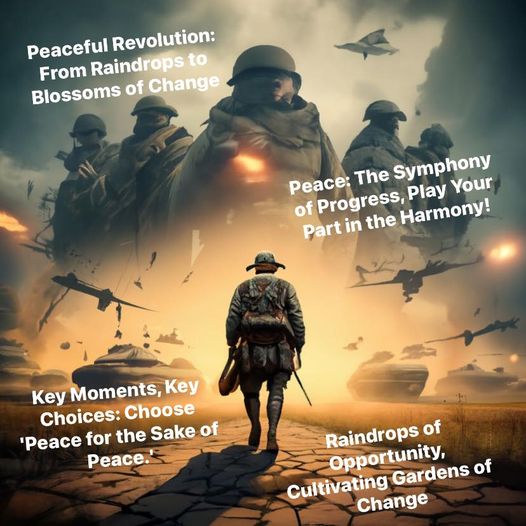
Every sector of society professes its desire to establish peace, making it challenging to find anyone who opposes this notion. However, despite the universal aspiration for peace, it remains a topic of debate rather than a practical reality. This peculiar contradiction persists, and no one can deny its existence.
This paradox arises from attaching ideas unrelated to peace, such as ‘peace with justice’ or ‘peace with human rights.’ These definitions are impractical and unattainable, as peace is about means, not ends. It opens up opportunities, and it is the responsibility of individuals to seize these through their own efforts and strategies. Peace cannot grant desires; individuals must reach their goals through careful planning and perseverance, without imposing conditions on peace or ceasefire.
An analogy can be drawn between education and a key unlocking new horizons. Education provides access to life’s opportunities, but it is the individual’s duty to use that key and explore the limitless potential that awaits.
Analogous to education being a key unlocking new horizons, peace is compared to rainfall. Like rain alone can’t cultivate crops, its primary role is to enable irrigation. Farmers skillfully employ rainwater by planting seeds, resulting in the fruition of desired outcomes. Peace facilitates progress, providing opportunities that people must capitalize on through wise planning. The essential condition for peace is to allow it to unfold naturally, without external interference such as bullying, provocation, election interference, regime change, or biases. Thus, embracing ‘peace for the sake of peace’ is the most suitable approach, while pursuing ‘peace for the sake of justice’ or ‘peace for the sake of anything else’ is impractical and unattainable.
Reflecting on history, nations like Germany and Japan engaged in World War II with specific goals. However, they realized post-war that peaceful struggle could have achieved everything without the need for war. Today, the era of war is over, and violence leads only to self-destruction, both physically and morally.

